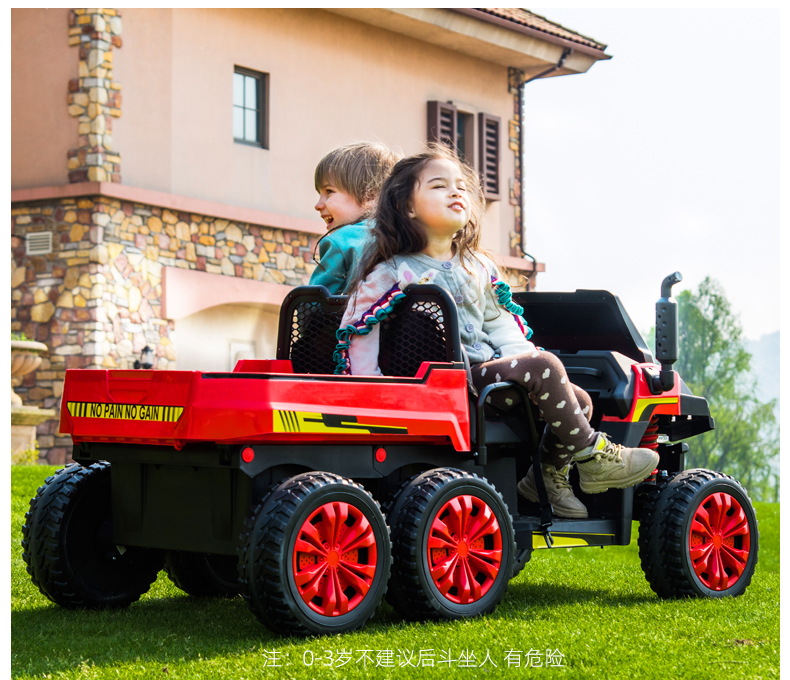Kids toys
4 Types of Parenting Styles and Their Effects on Kids
There are 4 known main types of parenting styles: authoritative, authoritarian, permissive, and neglectful. Each parenting style has its own unique take that can have different repercussions on child behavior and development.
Authoritative Parenting
Authoritative parenting style is characterized by lots of warmth, responsiveness, and support given by authoritative parents combined with reasonable levels of control and discipline.
Authoritative parents who raise kids tend to grow up to be physically, emotionally, and mentally healthy. These children are skilled in the mental and social realm. Though they can be naughty at times, the behavior is immediately curbed by their parents. The kids’ grow up to be confident healthy adults.

Authoritarian Parenting
Authoritarian parenting is characterized by excessive control and discipline, resulting in low levels of responsiveness and warmth to the kids. Kids of authoritarian parents are obedient but may also exhibit anxiety, tend to be withdrawn, and have self-esteem issues. These kids may also struggle in decision making and social skills and have low confidence.
Permissive Parenting
Children of permissive parents parenting experience plenty of warmth, affection, and responsiveness, but grow up lacking in control, and discipline. These kids are otherwise called ‘spoiled brats’, behaving in an impulsive manner, lack self-control in social situations and have difficulty following rules. They may also struggle with academic performance and have problems with social skills and relationships.
Neglectful Parenting
Kids of neglectful parents who tend to be emotionally distant don’t receive much love and care from this type of parenting. Growing up, children may feel unloved or unwanted, and may struggle with academic and social skills. They may also engage in risky behaviors and have a hard time forming healthy relationships from youth that can carry on to adulthood.
Diana Baumrind’s Parenting Styles Theory
Diana Baumrind is a developmental psychologist in child psychology who is best known for her research on parenting styles.
Baumrind’s theory states that there are 4 different parenting styles, each characterized by various combinations of parental control and responsiveness.
The theory also suggests that authoritative parenting is linked with the best outcomes for kids including higher academic achievement, better social skills and behavioral problems are easily adjusted or curbed.
Kids who are raised with authoritarian parenting are known to be anxious, and exhibit signs of depression at an early age.
Permissive parenting can be a good method but children are mostly lax and prone to behavior issues; they get away with it when they do something unpleasant, knowing fully well that their parents will not resort to punishing them.
Studies also show that children who are tended to by uninvolved parenting show high anxiety levels, they do poorly in school, and tend to mistrust people and their environment. These kids also grow resentful of their parents that only reinforces attitude and behavior problems that can be carried into adulthood.
Statistics on Different Types of Parenting Styles
- The most common parenting style is authoritative parenting as it leads to positive outcomes for kids when it comes to confidence and competency in academic achievement.
- Permissive parenting is often linked to children who aren’t given enough control and discipline, thus rendering them fearless of authority figures and have difficulty following rules.
- Authoritarian parenting involves strict methods of raising children has resulted in poor levels of self-esteem and confidence, the ever-present feeling of inferiority, and the need to meet the high expectations their parents have of them.

More About Authoritarian Parents
Authoritarian parents are those who believe that the best way to raise a child is by enforcing strict discipline that even goes so far as to instill fear, tempered with the philosophy of authority and obeisance. These are the types of parents that were raised in the same manner as well and are adept at giving out capital punishment to their children if necessary.
Some common characteristics of authoritarian parents include:
- Their parenting method has a set of strict rules that they expect their kids to adhere to at all times and may punish them severely if they fail to comply.
- Children often suffer from feelings of humiliation.
- Physical punishment is often used as their main form of discipline like spanking or hitting.
- Kids of authoritarian parents find themselves heavily guarded and controlled which thwarts their independence while growing up.
- Authoritarian parents value obedience and respect for authority above all, and may not encourage their children to question authority or think for themselves.
Uninvolved Parents and The Effects on Children’s Behavior
There has been a study about children raised by parents who had often neglected their needs. From physical, mental, emotional, to providing kids properly with food, clothing, and schooling, children who are in unloving homes often struggle with feelings of abandonment and use coping mechanisms to overcome their sense of confusion. They do poorly at school and find themselves having difficulty trusting people and their environment.
Authoritarian Parenting and Mental Health Issues
One possible reason for this link between authoritarian parenting and its impact on mental health issues is that thhe kids raised in and exposed to a very strict and controlling environment may feel a lack of independence and control over their lives, resulting in feelings of powerlessness and low self-worth. The use of harsh criticism and punishment and criticism by authoritarian parents can create a negative emotional environment which can only exacerbate mental health issues in children.
Permissive Parents
Happy go lucky, undisciplined, and lacking in control in are often the result of the differing lenient methods used by permissive parents. Children who grow up in a very lenient household are often seen as spoiled, disrespectful, and do not take no for an answer.
Permissive parents have the notion of putting their children’s happiness and life satisfaction over everything else which seriously impacts the discipline, and the overall moral structures of what’s right and wrong.
Why is authoritative parenting so often linked with successful kids?
Research show that the way with which authoritative parents raise and nurture their kids have better outcomes, and have mostly succeeded by starting with building their confidence, firm but loving discipline, and all out support mentally, emotionally, socially, and academically.
Child Temperament In Child Development
A child’s temperament is a direct result of parental upbringing and the influences from the type of domestic environment the family thrives in.
Attitudes and behaviors are also molded on a daily basis, which enables the child’s responses to mental, emotional, physical stimuli.
Understanding Chinese Parenting
This style is often characterized by its emphasis on discipline, hard work, and academic achievement. Some key features of Chinese parenting include:
- High expectations for academic achievement.
Parents are big on education and expect their children to always strive for excellence.
- Emphasis on discipline and hard work.
At a young age, Chinese kids are often encouraged to work hard and develop discipline from home doing chores routinely to academic pursuits.
- Respect for authority
In Chinese culture, authority equates respect and worldly status, and kids are often taught to respect authority at all times.
- Focus on practical skills
Improving practical skills is also important in Chinese parenting, in the belief that children will find these basic life skills very useful once they become adults.
- Strict parenting style
Parenting in Chinese culture often denotes strictParents may be strict with their children, setting clear rules and consequences for disobedience.
Nature Vs. Nurture
Studies have shown that the interaction between nature and nurture is quite complex, with the environment often changing and influencing the effects of genetic factors.
Nature and nurture both play a role, from parents’ attitudes and behavior to the kid’s genes are strongly intertwined. All children respond to parenting in various ways. As parents and guardians we know and understand the many, differing responses that kids bring out from us are only a portion of our genetic makeup.
Conclusion
Parenting is a complex and ever-evolving process, and parents may need to adapt their approach over time as their child grows and develops. What may have worked well during a child’s early years may not be as effective during adolescence or young adulthood.
FAQs
What is the best parenting style?
Some research suggests that an authoritative parenting style, which combines high levels of warmth and responsiveness with clear rules and expectations, tends to be associated with positive outcomes for children.
How are kids affected by parenting?
Parenting styles can have a significant impact on raising children and on a child’s life, development and well-being. The way parents interact with their children, their parenting styles, and the environment they create can all influence a child’s physical, emotional, social, and cognitive development.



